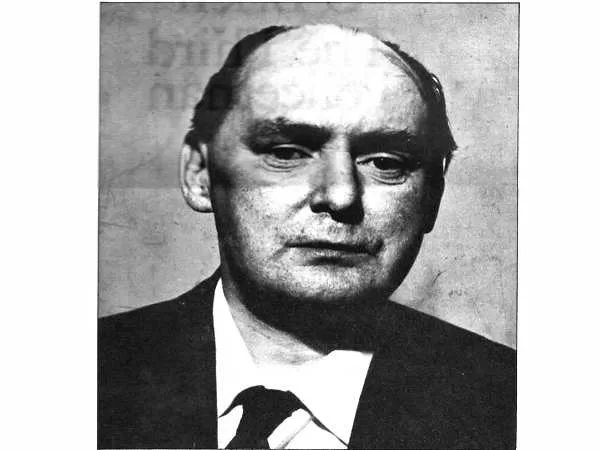Brian O’Nolan, born on October 5, 1911, in Strabane, County Tyrone, was a prolific Irish writer who left an indelible mark on 20th-century literature. Under various pseudonyms, including Flann O’Brien and Myles na gCopaleen, O’Nolan created works of satire, absurdity, and genius that continue to be celebrated today.
His ability to craft narratives that blend reality with surrealism and humor made him one of Ireland’s most unique literary figures.
Early Life and Education of Brian O’Nolan
Born the fifth of twelve children, Brian O’Nolan’s early life in Strabane was marked by both familial responsibility and academic excellence. He attended University College Dublin, where he distinguished himself as a brilliant student and a prodigious writer.
O’Nolan’s love for literature was apparent from an early age, and it was during his university years that he began to experiment with the complex narrative structures that would later define his most famous works.
After graduating, O’Nolan joined the Irish Civil Service, a position that provided him with financial stability. Following the death of his father in 1937, he used his salary to support his ten surviving siblings, a testament to his strong sense of family duty. Despite the demands of his job, O’Nolan found time to write, often crafting his works late at night. It was during this period that he wrote his first novel, At Swim-Two-Birds.
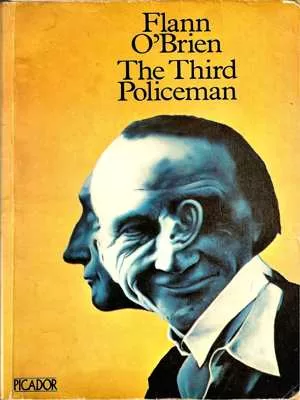
At Swim-Two-Birds: A Novel Ahead of Its Time
At Swim-Two-Birds was published in 1939 under the pseudonym Flann O’Brien. The novel’s title is derived from Snámh dhá Én, a ford on the River Shannon associated with the legendary Mad King Sweeney, a character who appears in the book.
The novel itself is a metafictional masterpiece, featuring a narrative within a narrative, where characters created by the protagonist, a university student, rebel against their author, Dermot Trellis.
The book’s structure is both chaotic and ingenious, with three separate openings that eventually intertwine. One introduces a pooka named MacPhellimey, another a depraved character named Mr. John Furriskey, and the third, the legendary hero Finn Mac Coll. The characters, unhappy with the stories written for them, conspire to overthrow Trellis, putting him on trial and torturing him in their rebellion.
At Swim-Two-Birds received mixed reviews upon its release, and despite its innovative approach, it did not sell well. Most of the copies stored in the publisher’s London warehouse were destroyed during a Luftwaffe bombing in World War II, further limiting its reach. However, the novel’s reputation grew over time, and it is now considered one of the most important works of 20th-century literature. It even made it onto Time magazine’s list of the 100 best novels published since 1923.
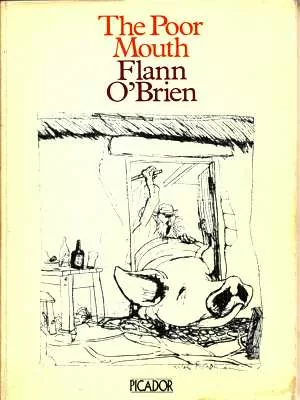
The Lost Manuscript: The Third Policeman
In 1940, O’Nolan completed his second novel, The Third Policeman, but it was rejected by Longman’s publishers. Disheartened by the rejection, O’Nolan claimed to have lost the manuscript, although in reality, he kept it in plain sight on his dining table. The novel remained unpublished until after his death in 1966.
The Third Policeman is a surreal and darkly humorous tale that delves into the bizarre world of a nameless narrator who becomes obsessed with the works of the fictional philosopher de Selby. The narrator, in an attempt to fund the publication of his definitive study on de Selby, commits murder, leading to a series of increasingly strange events. The novel features two eccentric policemen, Sergeant Pluck and Policeman MacCruiskeen, who are fixated on bicycles, believing that the atoms of bicycles and their riders can become so intermingled that some people are more bicycle than human.
The novel’s cyclical structure, where the narrator finds himself back at the beginning after a series of surreal encounters, adds to its unsettling and otherworldly atmosphere. While The Third Policeman is often considered a comedic work, its exploration of existential themes and absurdity places it among the great works of modernist literature.
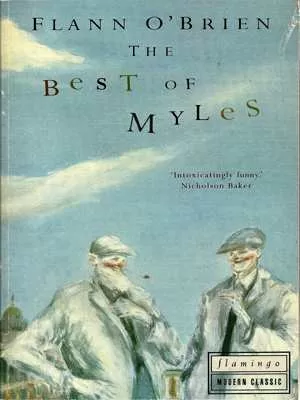
An Béal Bocht: A Satirical Masterpiece
In 1941, O’Nolan published An Béal Bocht under the pseudonym Myles na gCopaleen. The novel, written in Irish, is a parody of the Gaelic revival novels that romanticized rural Irish life. The title, which translates to The Poor Mouth, refers to the practice of exaggerating one’s poverty to gain sympathy or assistance.
Set in the fictional region of Corca Dhorgha, An Béal Bocht satirizes the portrayal of the Gaeltacht (Irish-speaking regions) as backward and poverty-stricken. The novel’s humor lies in its absurd exaggeration of these stereotypes, with Dublin Gaeilgeoirí (Irish language enthusiasts) visiting the area only to be overwhelmed by the wetness, poverty, and “Gaelicality.” The novel’s biting satire remains relevant, offering a critique of both the idealization of rural Irish life and the cultural nationalism of the time.
The Cruiskeen Lawn: O’Nolan’s Column and Legacy
From 1940 to 1966, O’Nolan wrote a column for The Irish Times under the pseudonym Myles na gCopaleen. The column, titled The Cruiskeen Lawn, was a mix of satire, humor, and social commentary, written in both English and Irish. O’Nolan’s sharp wit and ability to poke fun at Irish society, politics, and culture made the column immensely popular.
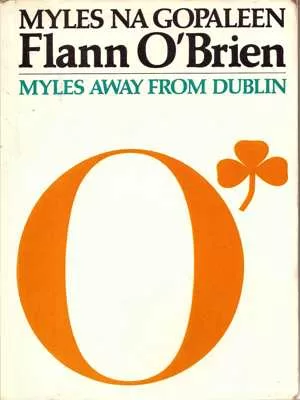
Despite his success as a writer, O’Nolan’s personal life was marked by struggle. His deepening alcoholism and frequent criticisms of politicians led to his forced retirement from the Civil Service in 1953. Financial difficulties plagued him in his later years, and he lived in relative poverty until his death on April 1, 1966, a date fitting for a man whose life was steeped in irony and satire.
O’Nolan’s posthumous publications, including The Hard Life and The Dalkey Archive, further cemented his reputation as a literary innovator. While The Hard Life is a satire on education, industry, and the Catholic Church, The Dalkey Archive revisits many of the themes from The Third Policeman, including the absurdity of existence and the blending of human and inanimate identities.
Conclusion: The Enduring Legacy of Brian O’Nolan
Brian O’Nolan’s work, whether under the name Flann O’Brien, Myles na gCopaleen, or his lesser-known pseudonyms, remains a testament to his genius as a writer. His ability to blend humor, satire, and profound philosophical insights has ensured that his novels and columns continue to be studied and appreciated. O’Nolan’s legacy is that of a writer who pushed the boundaries of narrative structure and linguistic play, leaving behind a body of work that is as entertaining as it is intellectually challenging. Whether you’re new to his work or a longtime fan, there’s always something new to discover in the writings of Brian O’Nolan.

